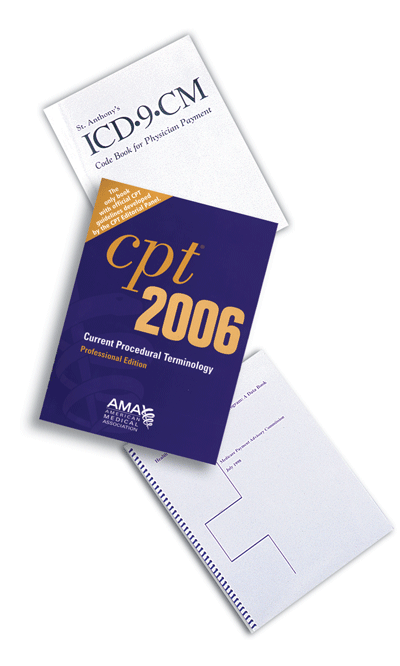A: No. None of the three manufacturers applied for new technology (NTIOL) status for their presbyopia-correcting IOLs. The May 3, 2005 Medicare Ruling defines three lenses, Crystalens (Eyeonics), the AcrySof ReSTOR (Alcon) and the ReZoom (Advanced Medical Optics), as presbyopia-correcting IOLs and allows beneficiaries to upgrade from a conventional IOL to a presbyopia-correcting IOL. The patient pays additional charges beyond those associated with standard cataract surgery. This approach differs from NTIOL reimbursement, which provides an additional $50 to an ambulatory surgery center when a NTIOL is implanted.

Q: Is charging Medicare patients for extra services and supplies associated only with presbyopia-correcting IOLs considered "balanced billing"?
A: No. Billing patients for noncovered services and supplies has always been permitted by Medicare and is not considered balance billing. Billing a patient for the disallowed amount of a covered service when the provider accepts assignment of benefits is balance billing. The presbyopia-correcting IOL Medicare ruling clearly distinguishes between covered and noncovered items and services associated with these IOLs. There is no change in Medicare coverage of medically necessary cataract surgery and the corresponding payments. But the surgeon's and facility's charges for additional items and services to correct presbyopia are not covered and are the patient's responsibility. This concept is known as patient-shared billing, not balance billing. Patient-shared billing is national Medicare policy and cannot be overturned by local Medicare carriers.
Q: Has Medicare assigned any new codes to describe the presbyopia-correcting IOL?
A: As of Jan. 1, 2006, HCPCS code V2788 describes the presbyopia-correcting function of the IOL. Placing this code on the Medicare claim form for the hospital or ASC is optional (and recommended).
Q: Do these claims require special modifiers or codes to describe the presbyopia-correcting IOL?
A: No. CMS Transmittal 636 dated Aug. 5, 2005 provides instructions for implementation of CMS Ruling No. 05-01, Presbyopia-Correcting Intraocular Lens. It states, "No new codes are being established at this time to identify a presbyopia-correcting IOL or procedures and services related to a presbyopia-correcting IOL." (A code for the presbyopia-correcting function of the IOL was later released, and effective Jan. 1, 2006.) No benefit category for coverage of these services and supplies exists; therefore, Medicare does not require reporting of these items or services.
Q: Does Medicare cover tests and procedures to treat astigmatism at the time of cataract surgery?
A: No. Diagnostic tests, such as corneal topography, and procedures, such as limbal relaxing incisions, to treat astigmatism and minimize dependence on eyeglasses are considered refractive services and are usually not covered by Medicare except for extraordinary situations. The patient is financially responsible for these extra charges. Medicare position on these services does not depend on the type of IOL that is implanted.
In addition, the May 3, 2005 Medicare ruling did not change patients' eligibility to receive a covered pair of post-cataract eyeglasses if they do not receive the optimal benefit of the IOL at all distances.
Q: If the patient develops posterior capsular opacity following implantation of a presbyopia-correcting IOL, will Medicare cover a YAG laser capsulotomy?
A: As a medically necessary procedure, YAG capsulotomy is covered. Coverage criteria include reduced visual acuity (check your local carrier policy for specifics), and a complaint from the patient.
Q: May a surgeon who purchases an IOL from the manufacturer sell it to the ASC or hospital outpatient department?
A: It's illegal for a surgeon to resell the presbyopia-correcting IOL to the HOPD or ASC where he performs the cataract surgery if he gains from the sale in any way. The surgeon may resell the lens to the HOPD or ASC where he performs the cataract surgery if there is no profit on the sale. The surgeon may not claim reimbursement with the health insurance plan for the IOL if the surgery is performed in a HOPD or ASC. The HOPD or ASC may not file a claim for reimbursement if it did not purchase the presbyopia-correcting IOL.
Q: Is co-management of cataract surgery using a presbyopia-correcting IOL permitted?
A: Medicare's guidelines for co-management of post-surgical care do not depend on the type of IOL used. Follow existing co-management protocols for the covered portion of these procedures. Additionally, while Medicare did not address the issue in either the May 2005 or August 2005 regulations, both physicians can participate in providing the non-covered services that accompany the use of these lenses.
Q: How is the value of this package divided between co-managing providers?
A: Medicare's co-management rules only provide instruction for covered services, not non-covered services. Consequently, it is unwise to extrapolate Medicare's 80/20 concept to the non-covered physician services. Instead, the receiving physician should make a discrete charge(s) for services rendered, consistent with usual and customary charges (e.g., exams, refractions). In anticipation of the co-managed care, the surgeon should reduce his package charge by an amount that represents services he will not render.
Q: May the surgeon collect a single fee for the non-covered services and pay the referring doctor for his services?
A: This approach is fraught with trouble and not recommended. In order to avoid any appearance of "payment for referrals" (i.e., kickback), each provider should charge and collect only for his respective services. For the patient's convenience, the surgeon may act as a collection agent for the co-managing physician—the patient makes out two checks (i.e., one check for the surgeon, and the other check for the receiving physician).
Ms. McCune is vice president of the Corcoran Consulting Group. Contact her at DMcCune@corcoranccg.com.




